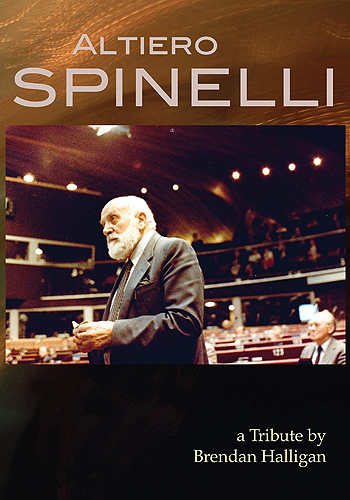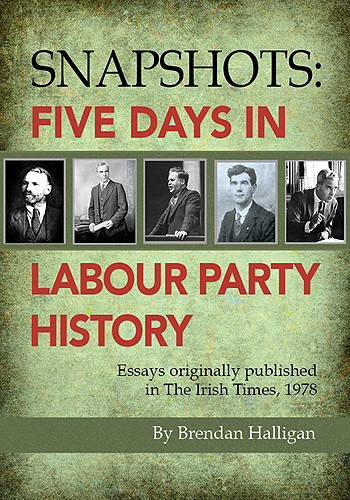WordPress database error: [You have an error in your SQL syntax; check the manual that corresponds to your MySQL server version for the right syntax to use near 'FROM wp_posts
WHERE 1=1 AND ((wp_posts.post_type = 'post' AND (wp_posts.' at line 2]SELECT SQL_CALC_FOUND_ROWS all
FROM wp_posts
WHERE 1=1 AND ((wp_posts.post_type = 'post' AND (wp_posts.post_status = 'publish')))
ORDER BY wp_posts.post_date DESC
LIMIT 0, 10
 One of the founding fathers of the European Union, Altiero Spinelli was a co-author of the historic Ventotene Manifesto, an influential figure in the European federalist movement and later a member of the European Commission, and MEP.
One of the founding fathers of the European Union, Altiero Spinelli was a co-author of the historic Ventotene Manifesto, an influential figure in the European federalist movement and later a member of the European Commission, and MEP.
This paper explores the man, his personal story and his success as a European innovator and facilitator.
“It is proper to commemorate Altiero Spinelli when marking the sixtieth anniversary of the Schumann Declaration. Along with Monnet and Delors, he belongs in the European Pantheon dedicated to those who created and built the European Union of today.
He stands in the middle between these two great Frenchmen, for if Monnet gave life to the ideal of integration and nurtured it through its infancy, and if Delors was to steer it from adolescence to early adulthood, it was this great Italian who inspired the first and guided the second, and who led Europe at a moment of crisis on the passage from childhood to adolescence.
In his memoirs, Monnet reminds us that while institutions endure, nothing can be achieved without the individual, that special type of individual who puts their stamp on history and leaves the world a different place; in Spinelli’s case, a better world. Each of these three men, whose lives overlapped and intertwined, not only understood how the world of politics works, but more importantly, knew how to make it for the purpose of change, transformational change.
Interesting too, that while each was the product of his own intensely local culture, all three focused their intellects and energies on promoting the European ideal; none ever held the highest office in their country; and all three spent the latter part of their career exclusively devoted to European affairs.” … (more…)
 Snapshots: Five Days in Labour Party History
Snapshots: Five Days in Labour Party History
By Brendan Halligan
In 1978, The Irish Times published a series of essays by Brendan Halligan about Irish Labour Party History, from Labour’s landmark decision to stand aside and permit Sinn Féin to contest the 1918 General Election to the disappointing results of the much anticipated 1970 elections.
The document, covering important events that involved such Irish political leaders such as William O’Brien, Tom Johnson, William Norton, James Everett and Brendan Corish is a fascinating trip down the days of Irish Labour history, detailing good times and bad.
For a downloadable PDF of this document, click here
By Brendan Halligan
A tribute to one of Ireland’s best known figures, Justin Keating.
Keating was a key figure in the new Labour Party created by Brendan Corish in the 1960s and served as Minister for Industry and Commerce in the National Coalition Government from 1973–77.
This tribute was written shortly after Justin’s death on 31 December, 2009:
“Justin Keating was a key figure in the new Labour Party created by Brendan Corish in the 1960s and served as Minister for Industry and Commerce in the National Coalition Government from 1973–77. A brilliant communicator, he was one of the best-known figures in public life for over four decades and was widely respected for the depth and breadth of his intellect.
Born in 1930 to Seán Keating, one of the most notable painters of his day, and May Walsh, a woman of strong republican beliefs, he was reared in the humanist tradition and attended secondary school in Sandford Park before studying Veterinary Science at UCD and University College London. He excelled as a Vzet and eventually became Dean of the Veterinary Science faculty in UCD and, towards the end of his career, the first Professor of Equine Science in the University of Limerick. A research scientist of note, he primarily regarded himself as a scientific rationalist and had the personality to go with it. Cool, rational and patient in debate, his forensic skills in assembling and deconstructing an argument were legendary and equipped him for the roles of teacher and politician.
He was one of a rare breed, an intellectual who took part in public life; not only that, but rose to become the Minister responsible for economic policy.
He came to public notice when he took leave of absence from TCD in 1965 to become Head of Agricultural Broadcasting in RTÉ, then beginning to find its feet as the national broadcaster. He devised and fronted “Telefís Feirme”, an agricultural education programme that became one of the most popular TV series due to his skills as a communicator. Within a year he had become a household name throughout the country and was one of the first TV personalities.” …